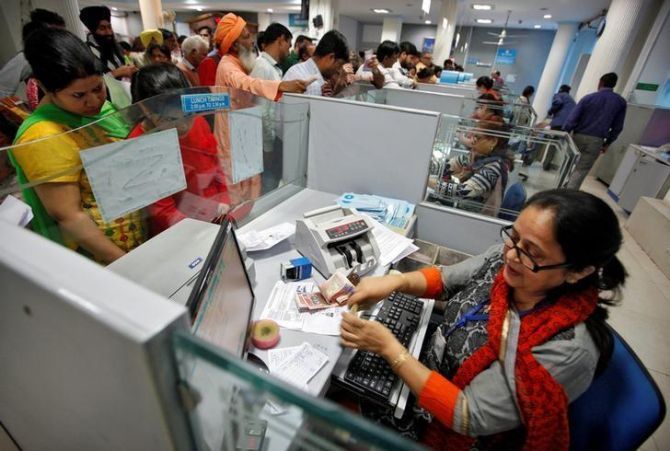Banks argued that loans of most lenders are funded primarily by retail deposits and not from the wholesale market as was the practice abroad

Banks are opposed to the move to link marginal cost-based lending rate (MCLR) to an external, market-linked benchmark, the Reserve Bank of India (RBI) has revealed in a rare dissemination of feedback on its website.
While it is standard practice for RBI-appointed committees to prepare their reports and seek feedback, those are not publicly disclosed, except in this case.
The internal study group, looking at the issue of effective monetary transmission, proposed in October 2017 that banks must take into account either of the three external benchmarks - the treasury bill rate, the certificate of deposit (CD) rate and the RBI’s policy repo rate from April 1, 2018.
These proposals were met with resistance from Day One, with bankers commenting publicly that such linking was not possible when a bank’s deposit rates are not linked to the market rate.
In an addendum on its website, the internal group said indeed such an asymmetry exists in the banking system, as depositors are not ready to invest in floating rate deposits.
“The IBA (Indian Banks’ Association) and banks, in general, have expressed that the MCLR system is working well and it should continue.
"All banks, barring some foreign ones, are of the view that none of the three external benchmarks recommended by the study group can be adopted in the near- to medium-run, since banks’ funding cost is not related directly to any of the proposed external benchmarks,” the addendum said.
Banks argued that loans of most lenders are funded primarily by retail deposits and not from the wholesale market as was the practice abroad.
“Therefore, if interest rates on deposits remain sticky, banks cannot lend at rates linked to an external benchmark, which may change every day, unless they manage this interest rate risk well,” the addendum said.
They argued in the absence of an effectiv interest rate swaps (IRS) market, banks cannot hedge the risk, for either their profitability will come under pressure or spreads will be higher than necessary as a compensation for interest rate risk.
“Banks have also highlighted that in the absence of a reliable term money market, use of any benchmark will leave the discretion on pricing the term premiums with the banks,” the paper said.
Rather, the banks proposed, that more “ideal benchmark could be constructed based on deposit rates of the banking system as a whole”.
Banks also said the reset period for computation of MCLR could not be fixed on a quarterly basis always.
The current practice was to match the tenor of the loan with a one-year reset period, thereby addressing the interest rate risk in the banking book.
“Moreover, Indian Accounting Standards (IndAS) and International Financial Reporting Standards (IFRS) also suggest compatibility between tenor of the loan and reset period.
"Even if an external benchmark is adopted, the reset period should be linked to the tenor of the underlying external benchmark.”
While longer reset periods increase transmission lags, shorter resets increase interest rate risk for banks. Besides, customers would be averse to such frequent revision on their interest payment obligation, too.
Banks added “in a deregulated interest rate environment, spread over the benchmark – be it internal or external – must be the exclusive domain of commercial banks.”
The spread could not be fixed forever for a variety of loans, as credit risk premium was time-varying and expected credit losses do change over time.
“According to banks, with the switchover to an external benchmark, the spread decisions may get even more complex, because of the uncertainty about managing interest rate risk, which may partly influence spreads.”
Banks preferred market competition alone to lead to convergence of spreads, and regulatory prescriptions on whether the spread should change or remain fixed would not be in sync with the spirit behind deregulation.
Banks, therefore, preferred to continue with the MCLR regime, seeking more time to enable a fuller assessment of its performance on transmission.
“One and a half years, according to banks, is too short a period to assess the effectiveness of a new regime, given the normal lags in transmission.”
Rather, banks voluntarily sought a sunset date for base rate customers to be converged to MCLR, something that the RBI policy advocated in its sixth bi-monthly monetary policy review on February 7.
Photograph: Ajay Verma/Reuters












 © 2025
© 2025